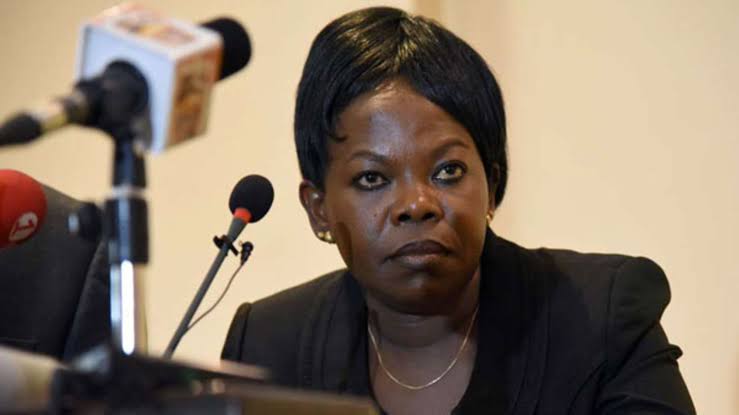Margaret Wanjala Mwachanya, a former Independent Electoral and Boundaries Commission (IEBC) commissioner and Kenya’s immediate past ambassador to Pakistan, has once again found herself in the spotlight. This time, she is not just vying for a top government position but is also entangled in a bizarre court case that raises serious ethical and professional concerns.
She has been shortlisted for the position of Chairperson of the National Police Service Commission (NPSC) and is set to appear before the interviewing panel on Tuesday, March 25, 2025. However, her ongoing legal battle in the Vihiga Law Courts should force Kenyans and the interviewing panel to question whether she is fit for such a critical role.
Mwachanya is currently embroiled in CRIMINAL CASE N.O MCCR/E637/2024
under Tracking number 97SE2024, where she is suing a witch doctor over a failed spell. According to reports, she sought the services of the traditional practitioner to influence her reappointment as Kenya’s ambassador to Pakistan after being recalled in 2022 when President William Ruto’s government took office. Having been appointed under former President Uhuru Kenyatta’s administration, she was desperate to retain her position and, instead of relying on merit or professional lobbying, turned to the supernatural. When the spell failed to deliver the desired outcome, she demanded a refund, leading to the ongoing court dispute.
The irony of her candidacy for the chairperson position of the NPSC cannot be ignored. This is a body entrusted with ensuring professionalism, discipline, and integrity in the police service. Yet, here is a candidate who, when faced with a career setback, chose to seek a mystical shortcut rather than rely on her track record and professional credibility. If appointed, she would be tasked with shaping Kenya’s policing standards while simultaneously defending herself in CRIMINAL CASE N.O MCCR/E637/2024
under Tracking number 97SE2024 over accusations of being duped in a witchcraft deal gone wrong.
The interviewing panel must not overlook this issue. It is a test of whether integrity still holds weight in public appointments. Mwachanya must be questioned about this case, her judgment, and what it says about her ability to lead a crucial institution. If she truly believes in using supernatural forces to secure positions, how can she be trusted to uphold fair processes and enforce discipline in the police service? What message does this send to police officers who are expected to operate based on law and professionalism rather than superstition?
Her case is set for a hearing on April 14, 2025, meaning that if she were to be appointed, she would be stepping into office while battling a legal case that questions her decision-making abilities. This situation highlights a larger issue within Kenya’s leadership recruitment process; where political connections and favoritism often overshadow merit. Many times, individuals with questionable credibility find themselves in high-ranking positions, only to fail in their duties due to the very flaws that were ignored during their vetting.
Kenya must be more rigorous in selecting leaders, especially for institutions as critical as the National Police Service Commission. If a seasoned government official believes that black magic is a more effective tool for career advancement than competence and professionalism, what does that say about the leadership standards the country is setting?
Mwachanya’s case is not just about her personal missteps but a reflection of the need for stricter scrutiny in public appointments. Kenyans deserve leaders who stand on the pillars of integrity, sound judgment, and ethical leadership, not individuals who resort to questionable means when faced with career challenges. The government must take a firm stand against the appointment of individuals whose decision-making raises more questions than confidence. If Kenya is to progress, it must ensure that such cases do not become the norm but serve as a lesson on the importance of placing the right people in the right positions.
